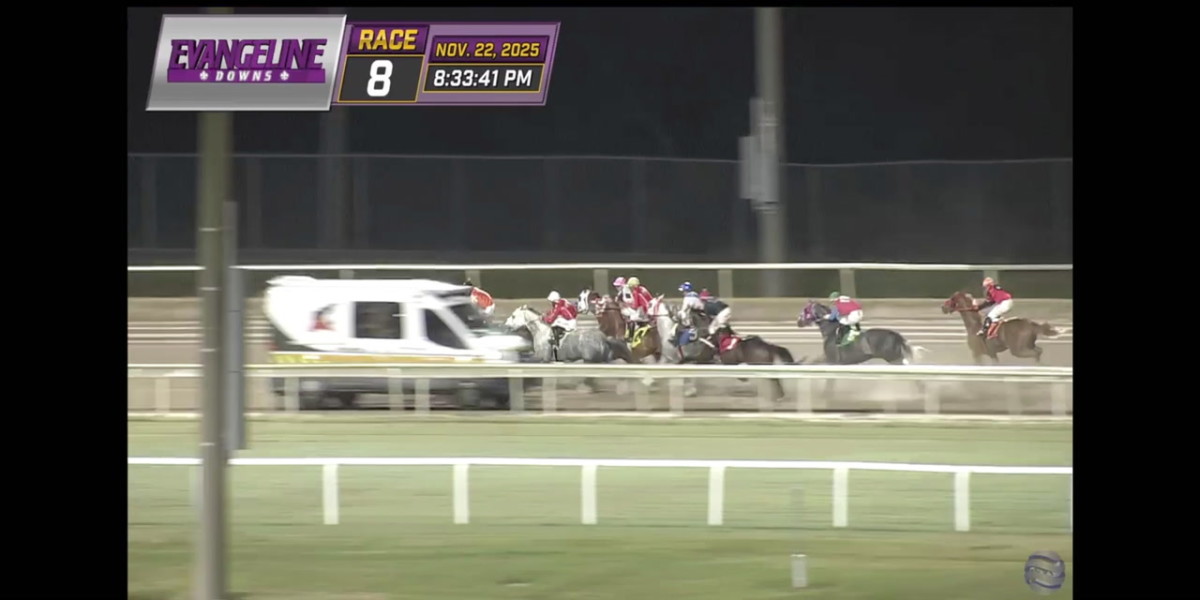On the night of November 22 at Evangeline Downs in Opelousas, Louisiana, a speeding Quarter Horse narrowly avoided a collision with an ambulance traveling along the railroad tracks. Javier Torres, regional manager for the jockeys’ union, reported that he contacted the stewards at Evangeline the next morning. The stewards initially thought the ambulance driver was inexperienced, possibly on his second day, and their focus on the horses at the starting gate prevented them from noticing the ambulance until it was too late.
Typically, ambulances are stationed near the start gate along the outer rail and follow the race. However, the final race of the evening, covering an 870-yard turn, differed from the preceding straight races. The ambulance may have been moving late toward this starting point when the race began. Fortunately, all horses avoided the ambulance, though jockeys ET Vera and Kubun Valiant Corona had to take urgent action after leaving their first post positions. The race was ultimately declared a no contest by the stewards.
This incident led to an internal investigation at the track, with a safety meeting scheduled involving jockeys, management, and stewards. Torres stated that the track’s upper management is committed to creating procedures to prevent a similar event in the future. Thankfully, no injuries occurred to either the horses or riders.
Proposed measures include having two ambulances stationed at fixed points rather than one following the race, a practice previously studied at Churchill Downs that showed faster response times. Another suggestion is that novice paramedics should not drive ambulances alone but be paired with an experienced partner.
The Louisiana Horse Racing Commission is conducting its own investigation, although its executive director declined to comment on the matter. Meanwhile, Boyd Gaming, owner of Evangeline, reaffirmed its commitment to the safety of jockeys and horses and is cooperating fully with both the ambulance company and the commission.
Fan Take: This incident highlights how crucial clear safety protocols are in horse racing to protect both riders and horses. Enhancing emergency response procedures ensures not only quick medical aid but also maintains the integrity and safety of the sport for everyone involved.



